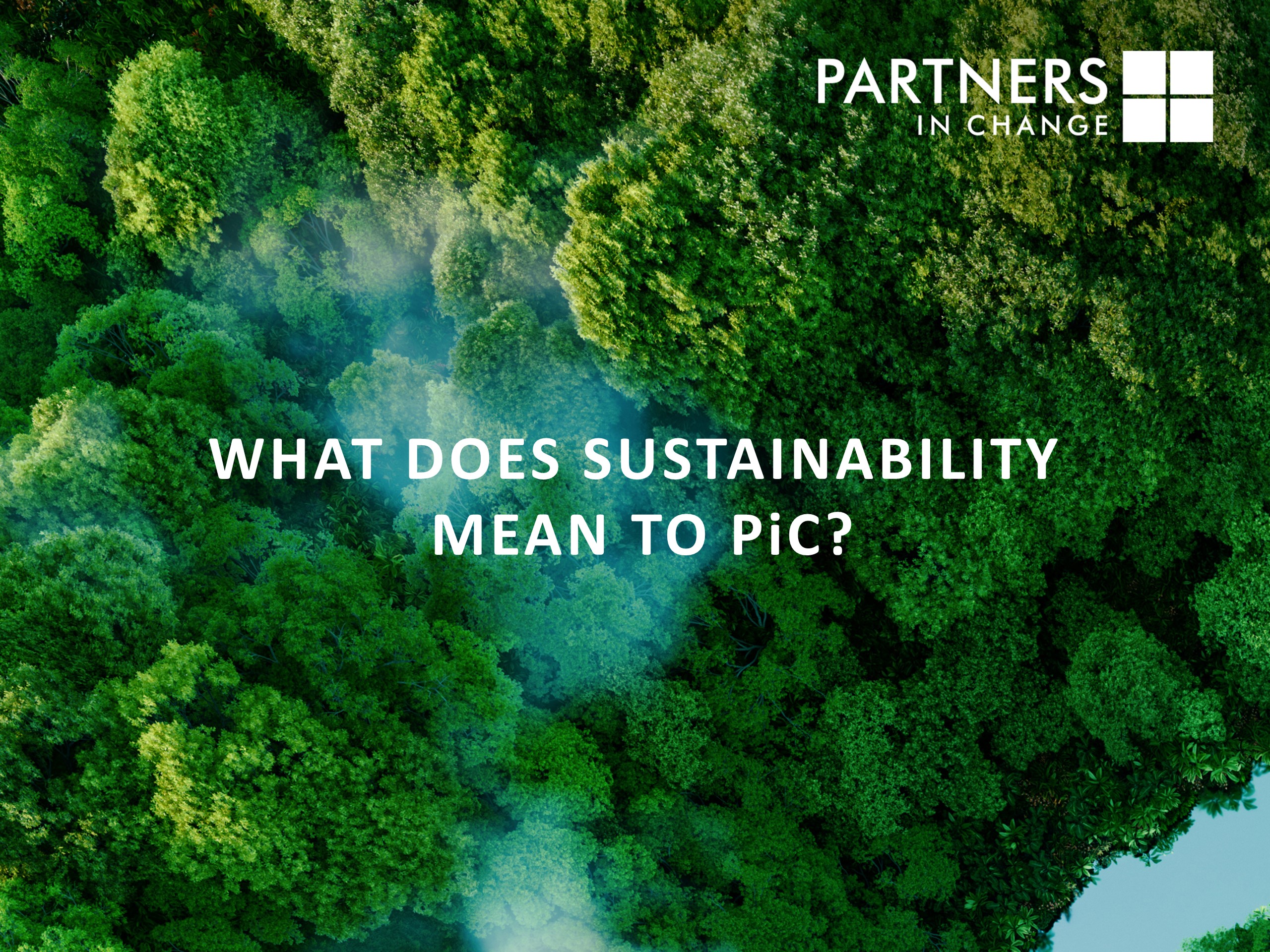
With our business now well established and growing at pace, we’ve spent time over the summer thinking hard about what sustainability means to us. We’ve chosen to define sustainability in its broadest sense, using John Elkington’s increasingly influential ‘people, planet, profits’ model, first formulated in 1994.
In an article published by Forbes in 2019, Elkington himself suggests the model has often been hijacked as a marketing tool, with some companies simply using it as window dressing to ‘greenwash’ their organisation. In this article therefore we aim to share exactly what sustainability means for us, outlining the concrete steps we have taken, and have now baked into our business model, to ensure we really do ‘the right thing.’
For Partners in Change, the People, Planet, Profits model means we always aim to do three things:
(i) Support a healthy society
(ii) Reduce our greenhouse gas emissions where possible
(iii) Grow revenues to remain financially viable in the long-term
As a small consultancy business, we obviously don’t manufacture products that must ultimately be disposed of; we produce almost no waste, and we don’t maintain a head office thereby reducing unnecessary commuter miles. Our environmental impact is therefore relatively limited. Having said that – applying the axiom that “if you can’t do a lot, do a little” we aim to act responsibly.
Supporting a healthy society
We start with our employees, then our partners, and ultimately the clients we work for and their employees and partners. We focus on listening to what everyone needs and how best we can work with them to provide it. Both “listening” and “caring” are built into our brand and company ethos and are fundamental to how we all collaborate.
Beyond this we maintain a growing change community of like-minded change professionals. This community shares ideas and tools to help us all deliver change in the best possible way. The community works together on a range of topics which it generates itself – from coaching to well-being, platform-change to digitisation.
Beyond this group, we have responsibilities to improve the broader society of which we are a small part. We have chosen to work closely with Emmaus, a charity for the homeless. There are perhaps better-known charities, but we really admire their long-term approach to solving homelessness. We’d urge you to take a look at their website.
Reducing greenhouse gas emissions
Before the pandemic we travelled frequently to our clients. Lockdown taught us that we can successfully deliver change remotely, using virtual technology – something that we continue to do whenever possible.
We’re now carbon-neutral, working closely with Carbon Neutral Britain who assess our carbon footprint, help us to reduce it and, where this is unavoidable, offset it by investing in a wide-ranging portfolio of projects aimed at promoting a healthy environment. The choice of offset portfolios was made by our employees.
We’re proud to say that every engagement we perform will be carbon-neutral, something that a growing number of our clients welcome.
Achieving financial viability
Without a viable revenue stream, we cease to exist. But we’re not greedy; we keep our costs down through our efficiency and flexibility. We work remotely but welcome the opportunity to meet whenever there is value (or fun) in doing so. We pass on these cost savings in reduced rates to our clients and profit-sharing across the team.
Of course, making a profit matters, but that is not our overarching raison d’etre. We believe that if you do the right things, and do them right, the results look after themselves. With that mantra in mind, we aim to deliver great work; be great people to work with; offer real job satisfaction for our employees and associates; continue to raise the bar; and achieve the financial stability needed to keep growing.
Geoff Mason, Partners in Change



Recent Posts